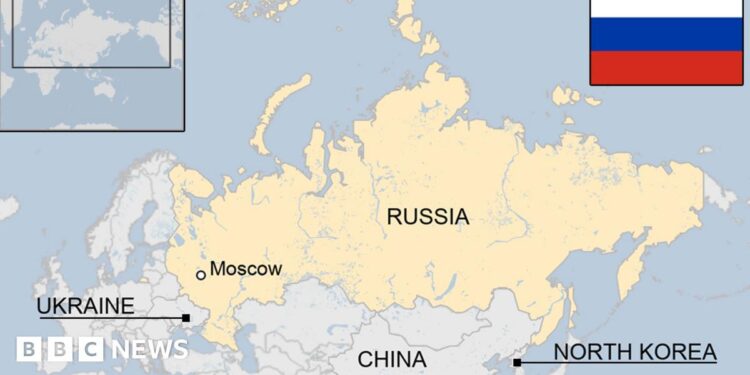Russia has announced that it remains engaged in efforts to find a resolution with Serbia regarding the sanctioned NIS oil company, according to a Reuters report. The statement comes amid ongoing geopolitical tensions and international sanctions targeting entities linked to Russia. Both Moscow and Belgrade appear committed to dialogue as they navigate the complexities arising from the sanctions regime and its impact on their economic and energy cooperation.
Russia and Serbia Persist in Dialogue to Resolve NIS Oil Company Sanctions
Russia remains steadfast in its efforts to engage with Serbian authorities to find a workable solution regarding the sanctions imposed on the NIS oil company. High-level discussions continue to emphasize mutual interests in maintaining energy cooperation and minimizing the impact of international restrictions. Both parties acknowledge the complexity of the situation but appear committed to seeking alternatives that could alleviate commercial disruptions while respecting the imposed measures.
Key points from ongoing dialogue include:
- Exploration of possible exemptions or special arrangements within the sanctions framework
- Joint commitment to preserving energy supplies to the Balkan region
- Consideration of financial mechanisms to facilitate continued operations despite challenges
- Enhancement of bilateral trade in other sectors to compensate for limitations on NIS activities
| Aspect | Russia’s Position | Serbia’s Response |
|---|---|---|
| Sanctions Impact | Seeks mitigation strategies | Open to dialogue |
| Energy Supply | Priority to maintain flow | Guarantee uninterrupted delivery |
| Financial Cooperation | Support alternative arrangements | Evaluate feasibility |
Impact of Sanctions on NIS Operations and Regional Energy Markets
Russia’s ongoing efforts to engage with Serbia regarding the sanctioned NIS oil company underscore the complex challenges sanctions impose on regional energy operations. The restrictions have not only hindered NIS’s ability to conduct international transactions but have also disrupted supply chains critical to the company’s refining and distribution activities. This strain extends beyond NIS, causing ripple effects throughout the regional energy market as neighboring countries reevaluate their import strategies and energy partnerships.
Key consequences observed include:
- Reduced investment opportunities and halted modernization projects at NIS facilities
- Shifts in crude oil sourcing, increasing dependence on alternative suppliers
- Heightened volatility in regional fuel prices due to supply uncertainties
- Growing diplomatic pressures urging Serbia to balance economic interests with international compliance
| Aspect | Pre-Sanction Status | Current Impact |
|---|---|---|
| Foreign Investment | Steady growth | Significant decline |
| Refining Capacity | Operational at 85% | Dropped to ~65% |
| Export Volumes | Consistent exports to EU | Severely limited |
| Regional Energy Pricing | Stable with minor fluctuations | Increased volatility |
Recommendations for Strengthening Russia-Serbia Economic Cooperation Amid Sanctions
To navigate the complex landscape imposed by international sanctions, both Russia and Serbia must focus on diversifying their economic engagement beyond traditional energy sectors like NIS. Prioritizing joint investments in technology, agriculture, and logistics can create resilient revenue streams insulated from geopolitical pressure. Enhancing bilateral trade agreements with flexible payment mechanisms could alleviate financial constraints, enabling smoother transactions despite banking restrictions. Furthermore, fostering transparent regulatory frameworks will attract foreign and domestic investors seeking stability amid uncertainty.
Pragmatic policy coordination remains essential. Serbia could leverage its strategic geographic position as a gateway between Eastern and Western Europe, while Russia might consider establishing special economic zones to facilitate legal trade channels. The following table outlines potential areas of cooperation with suggested actions and benefits:
| Sector | Recommended Action | Expected Benefit |
|---|---|---|
| Agriculture | Co-develop sustainable farming initiatives | Food security and export diversification |
| Technology | Joint R&D in energy-efficient solutions | Innovation-driven growth |
| Logistics | Upgrade transport corridors and customs processes | Improved trade flow and reduced costs |
- Expand barter trade options to bypass banking limitations
- Establish joint venture funds focusing on infrastructure projects
- Promote mutual legal assistance to protect investments
To Conclude
As Russia and Serbia continue discussions over the sanctioned NIS oil company, both sides have expressed a commitment to finding a mutually acceptable resolution amid escalating geopolitical pressures. The outcome of these talks remains uncertain, but their progress will be closely monitored by industry stakeholders and international observers alike. Further developments in this evolving situation are expected to shape the future economic ties between Moscow and Belgrade.















